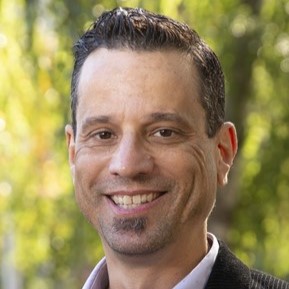|
|
| Embracing Open Science Practices in ABA |
| Monday, May 27, 2024 |
| 10:00 AM–11:50 AM |
| Convention Center, 100 Level, 108 AB |
| 📺 Streaming Status: recording available |
| Area: SCI; Domain: Applied Research |
| Chair: Art Dowdy (Temple University) |
| Discussant: Art Dowdy (Temple University) |
| CE Instructor: Art Dowdy, Ph.D. |
| Abstract: The “replication crisis” describes recent high-profile challenges in replicating studies across diverse scientific fields, most notably psychology (Open Science Collaboration, 2015). To counter these challenges, open science is a movement towards greater transparency, accessibility, and openness in science and scientific research (Cook et al., 2018; Peters, 2014; Vicente-Saez & Martinez-Fuentes, 2018). The practices of open science align with accomplishing these goals. For example, open sharing of raw experimental data, study materials, and software code in data sharing platforms, such as the Open Science Framework, enables independent researchers to verify and replicate analytic procedures reported in a study (Gewin, 2016). Similarly, publishing scientific papers in open access forums that do not require subscription fees or other barriers, including as pre-prints, enables greater access to research among larger and more diverse scientific consumer groups, including students and researchers otherwise lacking resources for access (Suber, 2012). In contrast to the social and behavioral sciences community at large, ABA researchers rely primarily on single-case experimental designs (SCED) to conduct their scientific experiments. These designs typically employ visual analysis of graphically depicted data and inductive reasoning to derive functional relationships among experimental variables (Ledford & Gast, 2014). Since concerns with data integrity and calls for open science practices based on the replication crisis have largely applied to researchers using group experimental designs based on the null hypothesis statistic testing model, ABA researchers may feel a degree of immunity from scientific integrity concerns identified within the larger scientific community (Tincani & Travers, 2019). Analytic differences notwithstanding, we contend there are excellent reasons for SCED researchers working within an ABA framework to embrace open science practices. First, the contingencies that operate to produce Questionable Research Practices (QRPs) among scientists working within the group research tradition also operate on ABA researchers, although they might manifest in disparate ways given differences in the methodologies. Moreover, there are pathways to QRPs uniquely created by the SCED approach (Tincani & Travers, 2022). Second, although applied behavior analysts have traditionally eschewed inferential statistics in SCED data analysis, these techniques are becoming increasingly prevalent in SCED research, opening new pathways for QRPs. Finally, there are distinct benefits for SCED researchers who embrace open science practices. These include increased visibility for researchers who employ them, new collaboration opportunities, closing the longstanding gap between research and practice, and enhanced credibility conferred on our scientific enterprise, generally. Presenters in our symposium will overview the open science movement, discuss the need for ABA researchers to embrace open science practices grounded in recent empirical work on this topic, and highlight pre-registration of research as one open science practice to address potential concerns with scientific integrity of SCED research. |
| Instruction Level: Intermediate |
| Target Audience: Stakeholders, RBTs, BCBAs, BCBA-Ds who currently or plan to design, implement, and/or report ABA research. |
| Learning Objectives: • Understand the Open Science Movement and Its Relevance to ABA Research: Participants will learn about the fundamental aspects of the open science movement, specific open science practices, and the advantages these practices offer to researchers in the field of Applied Behavior Analysis (ABA). • Identify and Address Questionable Research Practices (QRPs) in Single-Case Experimental Design (SCED): Attendees will be able to recognize common QRPs in SCED research and understand the recommended improved research practices (IRPs) that enhance the validity and reliability of SCED studies. • Prevent Selective Reporting in SCED Research: Learners will gain insights into the issue of selective reporting within SCED research, particularly in the context of special education, and learn strategies to mitigate this issue, promoting more transparent and accurate reporting of research findings. • Implement Pre-registration in SCED Research: Participants will explore the benefits and key features of pre-registration as an open science practice, including detailed guidance on how SCED researchers can pre-register their experiments to improve research transparency and reproducibility. • Promote Ethical and Transparent Research Practices in ABA: Through understanding the content of these presentations, learners will be equipped to advocate for and implement ethical and transparent research practices in ABA, contributing to the overall integrity and advancement of the field. |
| |
| Why ABA Researchers Should Embrace Open Science Practices |
| MATTHEW TINCANI (Temple University) |
| Abstract: This presentation will overview key features of the open science movement, specific open science practices, and benefits for ABA researchers in embracing open science practices. |
 Matt Tincani focuses on the application of behavioral principles to improve outcomes for people with disabilities and other special learning needs. His interests include systematic reviews of behavior science research, teaching job-related skills to neurodivergent people, smart technologies to improve special education, single-case designs, meta science, and open science. His recent work has explored questionable and improved research practices in single-case designs. He has published over 85 scholarly publications, including the books Classroom Management and Positive Behavior Support (2nd edition; Routledge) and Adults with Autism Spectrum Disorders, Evidence-Based and Promising Practices (Guildford Press). He is currently co-principal investigator of a $2.3 million NSF-funded research project to explore support for people with neurodevelopmental disorders in attaining employment in information technology fields. Matt Tincani focuses on the application of behavioral principles to improve outcomes for people with disabilities and other special learning needs. His interests include systematic reviews of behavior science research, teaching job-related skills to neurodivergent people, smart technologies to improve special education, single-case designs, meta science, and open science. His recent work has explored questionable and improved research practices in single-case designs. He has published over 85 scholarly publications, including the books Classroom Management and Positive Behavior Support (2nd edition; Routledge) and Adults with Autism Spectrum Disorders, Evidence-Based and Promising Practices (Guildford Press). He is currently co-principal investigator of a $2.3 million NSF-funded research project to explore support for people with neurodevelopmental disorders in attaining employment in information technology fields. |
| |
| QRPs and IRPs in Single-case Research |
| TIMOTHY SLOCUM (Utah State University) |
| Abstract: This presentation will describe recent empirical work to identify QRPs in SCED research, along with suggestions of improved research practices (IRPs) to bolster the validity of SCED. |
 Dr. Timothy A. Slocum earned his doctorate in Special Education at the University of Washington in 1991 and has been a faculty member at Utah State University (USU) in the Department of Special Education and Rehabilitation since that time. He has been involved in improving reading instruction and reading research for more than 30 years. More recently, he has written on single-case research methodology. Dr. Timothy A. Slocum earned his doctorate in Special Education at the University of Washington in 1991 and has been a faculty member at Utah State University (USU) in the Department of Special Education and Rehabilitation since that time. He has been involved in improving reading instruction and reading research for more than 30 years. More recently, he has written on single-case research methodology. |
| |
| Selective Reporting in SCED |
| JASON TRAVERS (Temple University) |
| Abstract: This presentation will highlight a recent study to examine selective report in SCED research within special education, along with suggestions for preventing selective reporting in SCED research. |
 Jason Travers is a professor of special education and applied behavior analysis at Temple university where he also serves as coordinator for the undergraduate and graduate degree programs in these two areas of study. A former public school teacher for students with autism, Jason is an expert in autism and developmental disabilities, particularly the education and treatment of children and youth with disabilities and interfering behavior. His research has focused on various topics related to special education including sexuality education, under-identification of racially diverse children with autism in special education, evidence-based practice, unproven and pseudoscientific interventions, and meta-scientific issues and trends in single case experimental research. He has published over 70 journal articles and book chapters, one book on sexuality education for learners with ASD, and articles in other outlets for organizations like American Speech Hearing Association and Skeptical Inquirer. He currently is a consultant for the United States Department of Justice investigations of unjustified restraint and seclusion of students with disabilities in public schools. Jason lives in a suburb of Philadelphia with his wife have three daughters. He enjoys walking his two dogs and playing video games with his wife. Jason Travers is a professor of special education and applied behavior analysis at Temple university where he also serves as coordinator for the undergraduate and graduate degree programs in these two areas of study. A former public school teacher for students with autism, Jason is an expert in autism and developmental disabilities, particularly the education and treatment of children and youth with disabilities and interfering behavior. His research has focused on various topics related to special education including sexuality education, under-identification of racially diverse children with autism in special education, evidence-based practice, unproven and pseudoscientific interventions, and meta-scientific issues and trends in single case experimental research. He has published over 70 journal articles and book chapters, one book on sexuality education for learners with ASD, and articles in other outlets for organizations like American Speech Hearing Association and Skeptical Inquirer. He currently is a consultant for the United States Department of Justice investigations of unjustified restraint and seclusion of students with disabilities in public schools. Jason lives in a suburb of Philadelphia with his wife have three daughters. He enjoys walking his two dogs and playing video games with his wife. |
| |
| Pre-registration in Single-case Design |
| SHAWN PATRICK GILROY (Louisiana State University) |
| Abstract: This presentation will overview the benefits and features of pre-registration as a key open science practice, with specific strategies and considerations for SCED researchers who wish to pre-register their experiments. |
 Dr. Shawn Gilroy's clinical work and research are dedicated to assisting preschool and school-age children with various developmental, behavioral, and learning difficulties. Gilroy is certified and operates clinically as both a School Psychologist (NCSP) and a Behavior Analyst (BCBA-D), with his work and research conducted in schools and early intervention settings. Gilroy earned a Ph.D. in School Psychology from Temple University. Prior to joining LSU, Gilroy trained at the Munroe-Meyer Institute (University of Nebraska Medical Center) and the Kennedy-Krieger Institute (Johns Hopkins University School of Medicine). Gilroy also spent several years abroad on a Marie Sklodowska-Curie research fellowship at the National University of Ireland-Galway, where he was involved in developing and evaluating free/open-source apps designed to support autistic individuals. Dr. Shawn Gilroy's clinical work and research are dedicated to assisting preschool and school-age children with various developmental, behavioral, and learning difficulties. Gilroy is certified and operates clinically as both a School Psychologist (NCSP) and a Behavior Analyst (BCBA-D), with his work and research conducted in schools and early intervention settings. Gilroy earned a Ph.D. in School Psychology from Temple University. Prior to joining LSU, Gilroy trained at the Munroe-Meyer Institute (University of Nebraska Medical Center) and the Kennedy-Krieger Institute (Johns Hopkins University School of Medicine). Gilroy also spent several years abroad on a Marie Sklodowska-Curie research fellowship at the National University of Ireland-Galway, where he was involved in developing and evaluating free/open-source apps designed to support autistic individuals. |
|
| |